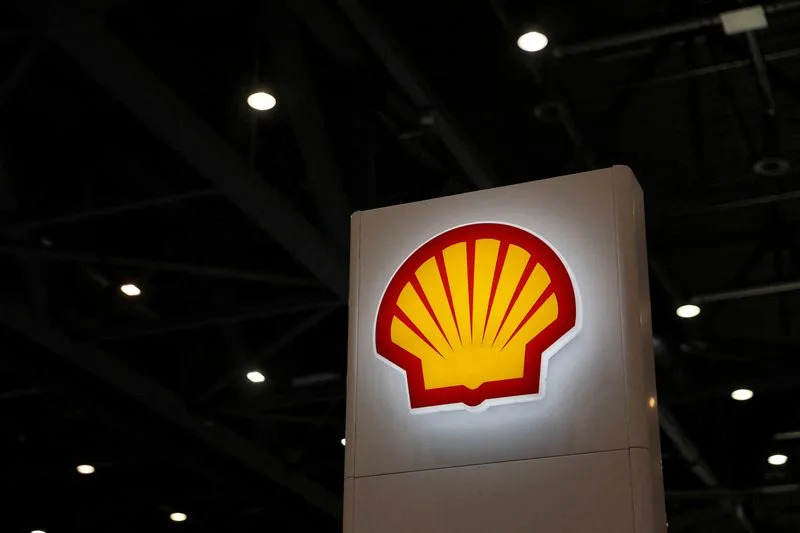Why Shell Adjusted Its LNG Outlook
LONDON (Reuters) – Shell has revised its outlook for liquefied natural gas (LNG) production in the fourth quarter, lowering estimates to account for reduced demand and supply chain disruptions. The British energy giant also highlighted that trading results for its oil, gas, and power divisions are expected to be significantly below those of the previous three months. This adjustment comes as Shell faces pressure from fluctuating global energy markets and geopolitical tensions, including the ongoing invasion of Ukraine, which has impacted Russiannatural gas exports.
Trading Results and Impairments
Shell has identified non-cash, post-tax impairments amounting to between $1.5 billion and $3 billion in its renewables division, driven by assets in Europe and North America. These impairments are linked to the company’s transition away from certain projects, including offshore wind investments, which have been impacted by reduced demand for renewable energy solutions globally. The trading results for Shell’s LNG division are also expected to be significantly lower than those of the third and second quarters due to the expiration of hedging contracts entered into in 2022 to mitigate risks associated with potential Russian production cuts.
Additionally, weaker seasonal demand in Shell’s chemicals and oil products divisions is anticipated to further dampen trading performance in the current quarter compared to the previous three months. Shell has not provided specific earnings figures for its trading operations, which are considered a critical part of its overall financial results.
Strategic Adjustments
Shell’s decision to scale back on new offshore wind investments aligns with its broader strategy to focus on its most profitable segments. The company recently underwent an extensive review of its portfolio, with interim CEO Wael Sawan emphasizing the need to reallocate resources toward high-margin businesses. This includes divesting from certain non-core assets and restructuring its power division to improve operational efficiency and profitability.
The company’s move away from renewable energy projects is part of a larger strategy to shift focus back to traditional energy sectors, such as LNG and oil refining, where Shell has consistently delivered strong returns. The decision to split its power division reflects an effort to streamline operations and enhance profitability by separating lower-margin or non-core activities from the core business.
Share Price Decline
Shell shares have been affected by broader market trends in 2024, which has been marked by rising energy costs, geopolitical instability, and shifting consumer preferences toward cleaner energy sources. The company’s stock price fell by 1.5% at the close of trading on November 11, 2023 (1125 GMT). This decline comes amid a series of financial headwinds, including declining oil and gas prices and weaker-than-expected earnings across its entire portfolio.
Context for Oil and Gas Companies
The energy sector has been particularly hard-hit in 2024, with profits declining sharply compared to the record levels recorded in the previous two years. This decline is attributed to a combination of factors, including falling oil prices, reduced global demand for hydrocarbons, and the impact of geopolitical tensions on supply chains. The U.S. oil giant Exxon Mobil has already signaled that its fourth-quarter earnings are expected to fall by approximately $1.75 billion compared to the prior quarter, driven by sharply lower refining margins and weaker performance across all its business units.
Shell, as the world’s leading LNG trader, is facing additional challenges in its trading operations due to the expiration of hedging contracts that were put in place to hedge against potential losses from reduced Russian gas production following the invasion of Ukraine. These expirations are expected to result in lower LNG trading volumes and revenues for the quarter compared to the previous three months.
Seasonal and Supply Chain Factors
Lower-than-expected seasonal demand in Shell’s chemicals and oil products divisions, combined with disruptions in key supply chains, is also anticipated to further weigh on its trading performance. Shell has indicated that these factors are likely to persist into the next quarter, creating additional pressure on its ability to maintain profitability despite strong demand for liquefied natural gas globally.
Future Outlook
Shell’s strategic adjustments reflect its ongoing efforts to adapt to the evolving energy landscape and capitalize on opportunities in high-margin energy sectors. The company is expected to continue focusing on its core LNG and oil refining businesses, as well as its renewable energy initiatives, which are positioned to benefit from increasing demand for clean energy solutions. However, the challenges posed by geopolitical instability, rising energy costs, and reduced consumer demand for traditional fuels remain significant hurdles that could impact the company’s ability to achieve sustained profitability in the coming quarters.
As 2024 unfolds, Shell will need to closely monitor its financial performance and adapt its strategy accordingly to navigate the complexities of the global energy market. The company’s ability to maintain its competitive position in a rapidly changing industry will depend on its capacity to deliver consistent returns across its diverse portfolio while addressing headwinds such as rising costs and shifting consumer preferences.
(Reported by John3495 in London, additional reporting by other sources)



